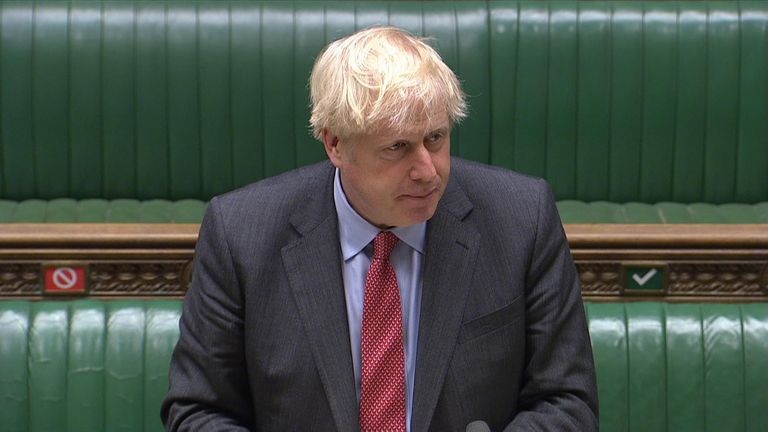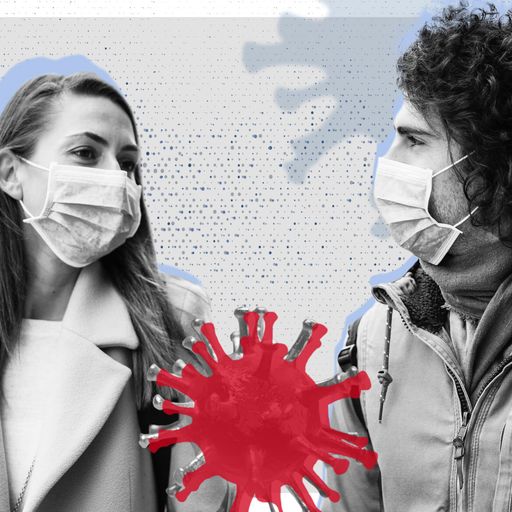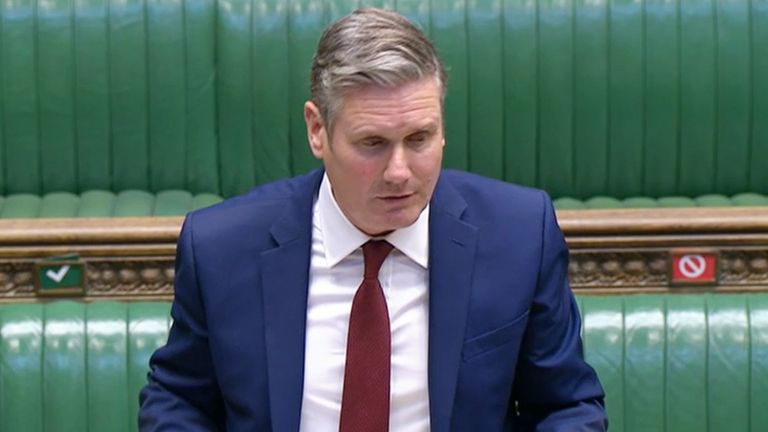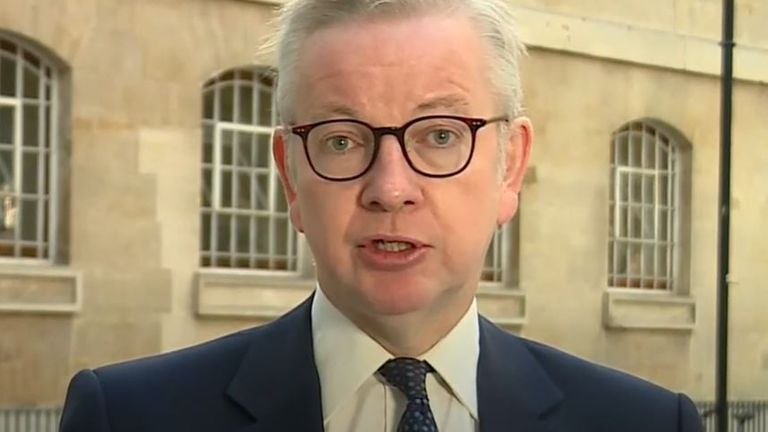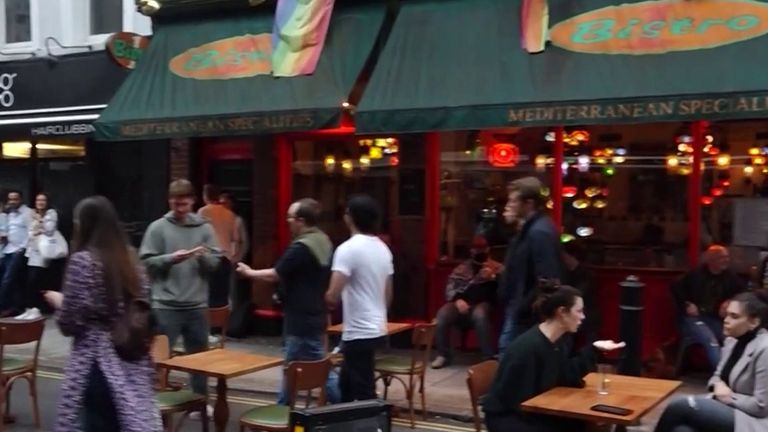Face masks will become compulsory for bar staff, shop workers, waiters and taxi passengers in an effort to combat the rise in coronavirus cases in England, the prime minister has announced.
Fines for failing to wear a face mask will rise to £200 and will be extended to customers when they are not seated at a table, Boris Johnson told MPs.
Announcing the new coronavirus restrictions, the PM said the UK had reached a “perilous turning point” in its fight against COVID-19 and needed to “act now to avoid still graver consequences later on”.
He also warned that the measures could remain in place for as long as six months, declaring: “For the time being, this virus is a fact of our lives.”
The restrictions announced by the PM – who will address the nation from Number 10 later – are as follows:
- Office workers should work from home again where possible – although those in “key public services and in all professions” where this is not possible, such as construction and retail, should continue to go in. Mr Johnson later said that people should keep going in if it is important for their job, mental health or wellbeing
- From Thursday, all pubs, bars and restaurants must offer table service only and close at 10pm – but delivery services can remain open
- The requirement to wear a face covering has been extended to staff in retail, people in taxis and everyone using hospitality services
- Fines for not wearing a face covering will now double to £200 for a first offence
- COVID-secure guidelines will become a legal obligation for retail, leisure and tourism firms, with those who do not comply running the risk of fines of £10,000 or closure
- Only 15 people can now attend weddings, but 30 can still go to a funeral
- The “rule of six” has been extended to indoor sports teams, such as five-a-side football games
- The phased reopening of stadiums for sporting events from 1 October has been scrapped
But the PM has stopped short – for now – of introducing more sweeping and stringent measures to try and halt the rise in cases.
He acknowledged this in his Commons address, telling MPs: “I want to stress that this is by no means a return to the full lockdown of March. We’re not issuing a general instruction to stay at home.
“We will ensure that schools, colleges, universities stay open because nothing is more important than the education, health and well-being of our young people.”
It had been suggested that proposals being worked on by Downing Street could have seen essential travel to schools and workplaces continuing, with restaurants and bars shut.
There was also speculation that Number 10 would ban different households from mixing.
Mr Johnson indicated that troops could be drafted in to free up police, in order to allow officers to focus on enforcing coronavirus rules.
A Number 10 spokesperson said this would involve the military “backfilling certain duties”, adding: “This is not about providing any additional powers to the military, or them replacing the police in enforcement roles, and they will not be handing out fines.”
Labour leader Sir Keir Starmer said that while his party supported the latest measures, the public would be worried that the government “doesn’t have a strategy”.
“One day people were encouraged to work in the office, in fact more than encouraged, they were openly challenged by the prime minister for not doing so, today they’re told the opposite,” he said.
“This is a time of national crisis but we need clear leadership.”
He called for an extension of the furlough scheme, a demand echoed by the SNP’s Westminster leader, Ian Blackford.
Taking questions from MPs after his statement, Mr Johnson confirmed that they would have an opportunity to debate the new measures next week.
And he said that ministers would review the restrictions if the public can “do what they did before” in helping get the spread of the virus under control.
The PM also accused Labour of blaming the issues with the government’s test and trace system for the resurgence of cases.
“Testing and tracing has very little or nothing to do with the spread or the transmission of the disease,” he said in response to a question from Barnsley East MP Stephanie Peacock, who accused Mr Johnson of failing to set up an “effective” system.
The devolved administrations in Scotland, Wales and Northern Ireland are able to take their own measures and move at a different pace if they so choose.
First Minister Nicola Sturgeon has gone further than the PM, announcing a ban on households visits in Scotland from Wednesday.
People in Northern Ireland have already been banned from mixing with other households indoors.
Welsh First Minister Mark Drakeford said “many of the things the prime minister is talking about doing today, we have already done in Wales”.
“Very early on, we put the two-metre distance in the workplace into our regulations – it’s not been in guidance in Wales, it’s been a legal obligation on employers,” Mr Drakeford told the Welsh parliament.
“The prime minister is going to tighten the rule of six. Well, our rule of six has been tighter all along – you can only meet somebody from your extended household.”
The new restrictions come after the COVID-19 alert level was raised from three to four, meaning there is now a high or rising level of transmission.
The government’s chief scientific adviser has warned that the UK could see 49,000 new cases every day within weeks unless action is taken to drive down the rate of infection.
This would translate to “200-plus deaths a day” by mid-November, Sir Patrick Vallance said.
Mr Johnson has insisted he does not want to put the country into a second national lockdown and will be hoping the latest measures are enough to turn the tide.
But despite there being no national lockdown like the one seen in March, some 13.5 million people across the UK are currently living under some form of local restrictions.

